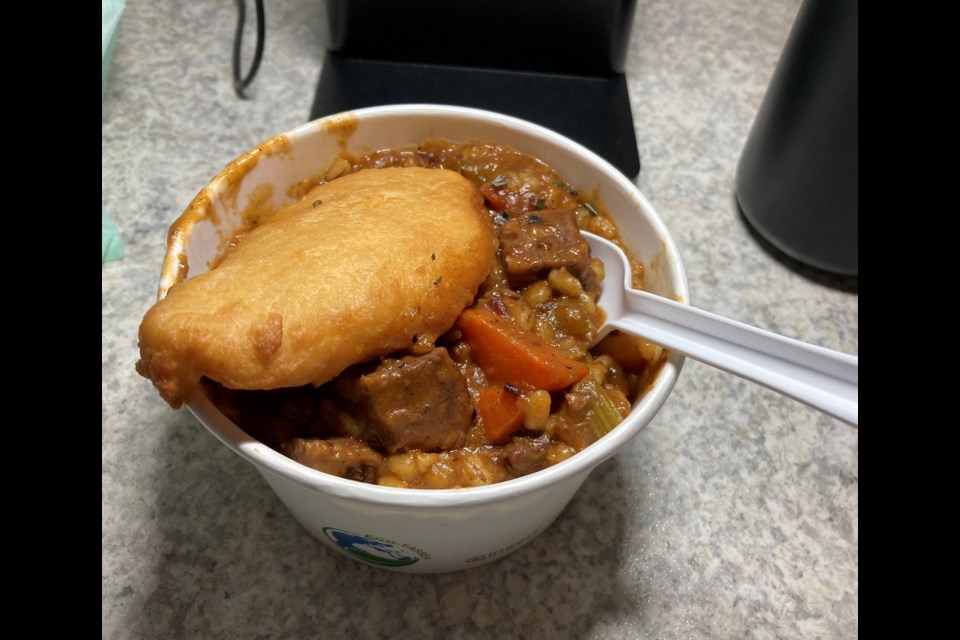W.H. Croxford High School’s culinary arts program students showcased some Indigenous cuisine from Sept. 26 to 29, as part of Truth and Reconciliation Week 2022.
The national program – open to schools across Canada – aimed to memorialize children lost to the residential school system and honour both survivors and their families leading up to the National Day for Truth and Reconciliation, which was recognized on Sept. 30.
According to the National Centre for Truth and Reconciliation, the program helps students and staff to learn and commemorate the histories of First Nations, Métis, and Inuit knowledge keepers as an important part of the path to reconciliation.
Chef Duane Sovyn, culinary arts instructor at W.H. Croxford, said his students wanted to find a way to play their part in the school’s commemoration of Truth and Reconciliation Week.
“The students wanted to partake in the [Truth and Reconciliation] and so we turned it into a week of food,” Sovyn said with a laugh. “Everyone says they’re the heart and soul of the school – we’re the stomach."
The first day featured smoked elk currant sausage on a fry bread topped with juniper, sage, heather flour and spring onions, Sovyn said.
Next, the students embarked on producing a beef barley and squash stew with bannock, featuring 'Three Sisters' vegetables.
“They were inspired by foods that we found in the local area,” Sovyn said of the ingredients. “We discussed with our students what we could find locally or brainstormed things that could be cooked with those Indigenous-inspired dishes nowadays.
“So, they took the Canadian beef barley stew and did an Indigenous twist on it.”
On the third day, students cooked up cedar plank salmon with roasted 'Three Sisters' vegetables, and on the final day cooked up a prairie jambalaya with elk, prawns, and legumes.
“They weren’t traditional Indigenous meals by any means, but they were Indigenous foods … and they were delicious. The kids had a hand in preparing everything and discussing what it was going to entail,” Sovyn said. “And they did pretty much all of the work for it as well.”
According to the culinary instructor, he and fellow chef Ryan Doggart (Red Seal Baker) sat down with the students to determine the best way the culinary arts program could take part in Truth and Reconciliation Week.
“A lot of times people just talk about things... this way they can have more of a feeling,” he said. “We wanted to have them not only talk the talk, but we wanted them to try the food as well.
“We wanted them to understand what every culture brings – every culture is part of a puzzle, and Indigenous culture is no different. We wanted to make sure that it was represented in our repertoire of food that we had.”
He said the culinary program's mission for the week was to bring respect and awareness to the food of the Indigenous peoples and the importance of it in our diets. Sovyn added each time the students cook food, they discuss the region the foods are from, along with the culture.
“It wasn’t a very hard stretch for the kids to go ahead and realize that we were doing stuff locally and look at the diet of the Indigenous people,” he said. “It is important for the students to understand foods that are local to the different cultures that prepare them.
“Fortunately, nowadays they can get food from all over the world.”



